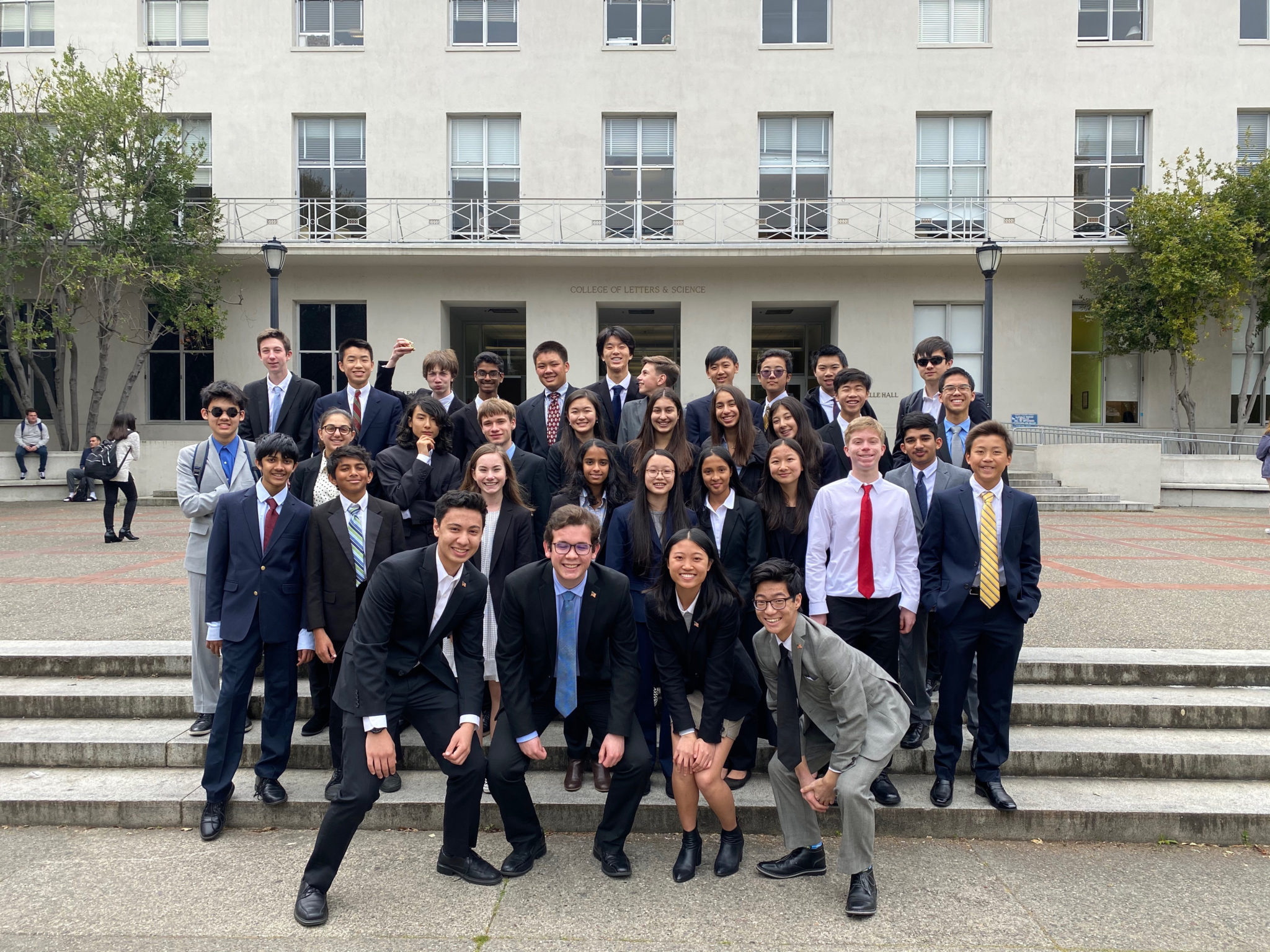

Members of Aragon’s Model United Nations club attended the 68th annual Berkeley Model United Nations Conference from March 6-8 along with other clubs and usually students from all over the world. The participants, or delegates, were paired to represent a country as they simulated speaking amongst committees and addressing the issues that the UN would discuss.
“[The conference is important] because it’s good [public speaking] practice and it’s good for teaching people different perspectives,” said Aragon’s MUN club treasurer and junior Rumi Loghmani. “It helps you learn how people work.”
At the conference, the delegates from individual MUN clubs or organizations gather in an assembly room to discuss the same world issue. The delegates first voice their country’s view on the issue and improvise to respond to those who have already spoken. In the unmoderated caucuses afterwards, they negotiate and write bills, or resolutions, to be voted on. Then the committees award the delegates who’ve best represented their countries and spoke well.
“You’re able to get more comfortable speaking in front of crowds so we had to make up a speech on the spot,” said MUN member and sophomore Maya Ayoub. “That was difficult for me the first few times, but then I got used to it and it was a great feeling. [I was] able to work with others that didn’t really share my stances and we could create things through our resolutions.”
The 100-200 person General Assemblies like the one Ayoub was in explored widespread issues that the UN usually discussed. The Specialized Committees of 50-100 more experienced students simulated non-governmental organizations that talked about the issues affecting how their country functioned and the Crisis Committees of 20-50 more skilled speakers attempted to solve specific situations. Speaking events were generally organized by level of experience of the attendee.
“I’m a senior so I usually end up in the crisis committees and the one I was this year is Franklin Delano Roosevelt’s cabinet,” said MUN club secretary and senior Franklin Lee. “The issues I discussed were related to the New Deal, and how to revitalize the American economy and the ways we could treat the depression.”
Not only do people use their skills for public speaking and for empathy in conferences, but they are useful in everyday life too.
“These conferences are really important for me to build these [public speaking] skills and to work with people,” Ayoub said. “I’m also a very avid watcher of the news and I like to be an informed citizen, so this is also a way for me to learn more about topics that interest me.”
Preparing for and participating in Model UN conferences like the one in Berkeley encourages students to improve their public speaking, confidence and awareness of current events.
“It helps us understand international issues and gives students a way to perceive them and possibly come up with solutions because we’re the next generation,” said MUN club member and freshman Christien Wong.
Before the conference, the members had to choose their preferred committee and topic so they could research and prepare to discuss that aspect of their assigned country.
“We did a lot of research and created this position paper which was about the two issues we were given,” Ayoub said. “For me, they were about LGBTQ rights in religious countries and prisoner rights. Then, at the actual conference, we [gave] speeches about our positions and created resolutions with other delegates.”
In school, Aragon students’ MUN club meetings helped them to mentally prepare themselves for the conference.
“We’re making meetings together, or we’re splitting it off,” Loghmani said. “It helps people to know all the different rules of when they talk, how they talk, and what to say or how to convey their messages even if they don’t know what they’re saying.”
Not all club members that had previously signed up attended the conference due to the fear of the spreading of COVID-19, but two-thirds of those scheduled to come still attended.
“I felt that Berkeley did a great job being conscious about the virus but also not raising unnecessary fears as they had hand sanitizing stations set out and told us to be careful,” said MUN member junior Natalie Graham. “The only real difference I noticed is the conference usually does have some international attendees and those delegates did not show up probably because of travel bans or just the unsafe nature of travel in the current climate.”
